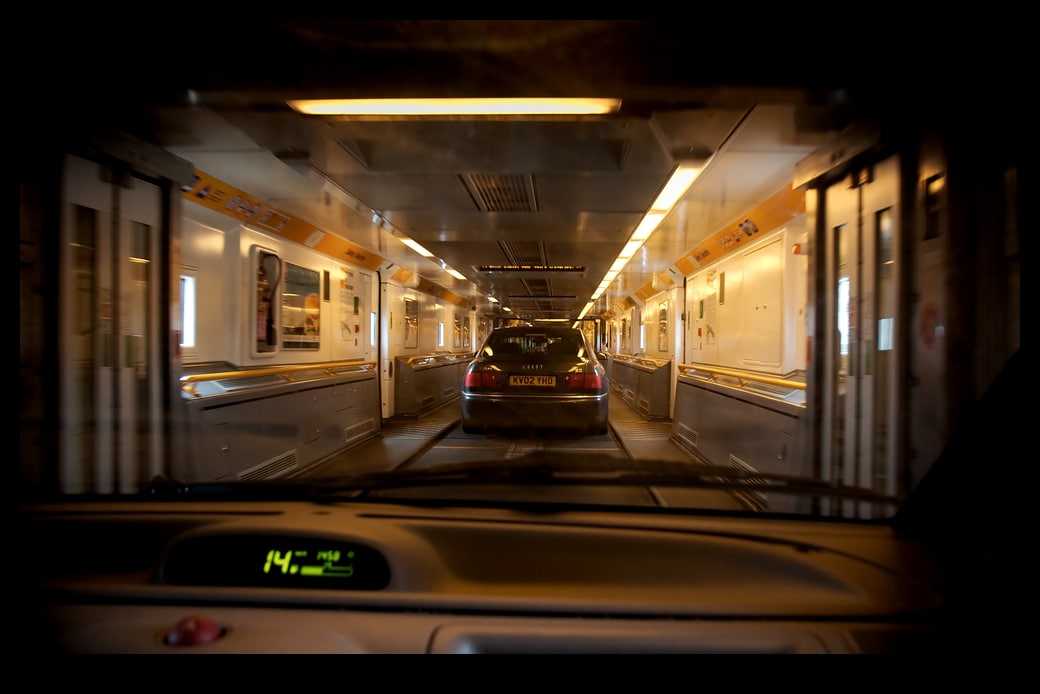Andrew Manze, Music Director, NDR Radiophilharmonie Hannover
Ralph Vaughan Williams – Symphony No. 5; Ralph Vaughan Williams (Conductor), London Philharmonic Orchestra
A pacifist and humanist, Vaughan Williams completed his Fifth Symphony during the darkest days of the World War II. It was premiered in London in 1943 and is an unambiguous expression of hope and confidence in mankind’s ability to salvage goodness from the wreckage of day to day realities. Putting subtexts aside, it’s also a really beautiful piece.
My reactions to Brexit were, and still are, shame at Britain’s apparent hauteur, worry that the EU, and by extension Europe, might be fractured by this divorce, and shock that the British electorate preferred demagoguery to the reasoned arguments of experts (politicians, intellectuals, business and financial leaders) and believed that Brexit will help solve the country’s problems. If the nightmare of visas can be avoided, musicians will still travel across the border between the UK and the EU. How culture fares within a benighted UK, however, remains to be seen.
Charlotte Bray, Composer, Berlin
Charlotte Bray – “That Crazed Smile”; Oberon Trio
The piece is one of a handful that I’ve written as a direct result of the move I made to share my time between London and Berlin in 2011. With the ease of travel in Europe and a curious mind, after visiting Berlin and falling in love with the city, I decided to quit the teaching work that was keeping me in London and become an entirely freelance composer. My career has benefited enormously from the decision and I have been able to develop strong working relationships with a diverse range of international musicians.
Simon Halsey, Chorus Director, London Symphony Orchestra, Conductor Emeritus, Rundfunkchor Berlin
Benjamin Britten, War Requiem, Sanctus; Robert Shaw (Conductor), Atlanta Symphony Orchestra
I’m horrified by Brexit and all it represents, but the fact that I’m in a minority suggests there has been a failure of communication—a failure to include people in understanding the benefits of the EU. Since we are therefore all to blame—I believe the UK remains a fundamentally decent and good country—let’s try to handle the future well. The messages of Beethoven’s Symphony No. 9, Tippett’s “A Child of our Time,” and Britten’s War Requiem are more important than ever.
The latest from VAN, delivered straight to your inbox
Philip Venables, Composer, Berlin
Naomi Pinnock, “Music for Europe”; Ensemble Adapter
Andrew Hamilton, “music for people who like the future”; Neue Vokalsolisten
I’ve chosen pieces from two composers: “Music for Europe” by Naomi Pinnock, a British composer who now lives in Europe (Berlin), and “Music for people who like the future” by Andrew Hamilton, who is from Europe (Ireland) but now lives in the UK.
“Music for Europe” looks to the past, to sadness, like a requiem for everything that we have lost as British-Europeans. Naomi’s piece is inspired by a Paul Klee text: “Hoch und strahlend steht der Mond. Ich habe meine Lampe ausgeblasen, und tausend Gedanken erheben sich von meines Herzensgrund. Meine Augen strömen über von Tränen.” “Music for people who like the future,” on the other hand, is more positive in its outlook, and is funny and absurd in style, just how I like it.
The text Andrew uses comes from Wagner’s Das Kunstwerk der Zukunft and talks about the interface between art and life. The two can’t be separated—we, as artists, must use our art and our voices to fight nationalism and right-wing extremism. Protest loudly!
Matthew Truscott, Concert Master, Mahler Chamber Orchestra
Henry Purcell, “Timon of Athens,” XIII. Curtain Tune; Florilegium Musicum Ensemble
My first thought was that it had to be Purcell, creator of some of the very greatest music to emerge from our little island. His music remains uniquely his own while absorbing and celebrating the many important European influences that were already enriching London’s musical life even in the late 1600s: French dance music, Italian counterpoint and Bohemian virtuosity distinctively “clog’d with somewhat of an English vein,” as his contemporary Roger North reported.
Then, which piece? This wonderful “Curtain Tune” is dark and disturbing, which is rather how I feel about this misguided and shamefully misrepresented enterprise. The ground bass traps the listener into confronting time and its inevitability, and the subject matter seems appropriate somehow: Timon, a citizen of Athens, birthplace of Western civilization and cradle of democracy, a lonely misanthrope struggling with his own place in the wider society. He didn’t manage. I hope we do. ¶
Subscribers keep VAN running!
VAN is proud to be an independent classical music magazine thanks to our subscribers. For just over 10 cents a day, you can enjoy unlimited access to over 875 articles in our archives—and get new ones delivered straight to your inbox each week.
Not ready to commit to a full year?
You can test-drive VAN for one month for the price of a coffee.




